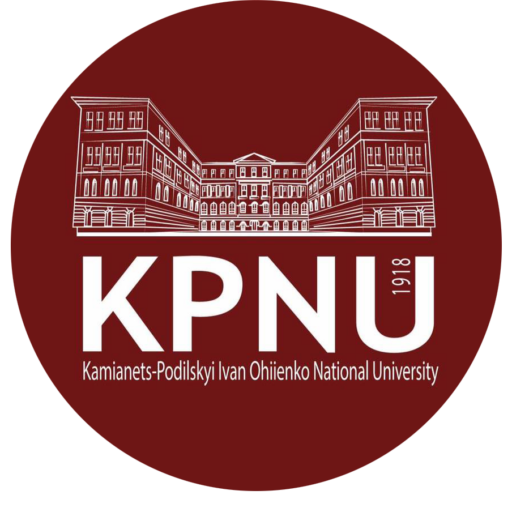Anastasia Lakusta
(Kamianets-Podilsky Ivan Ohiienko National University)
Scientific Supervisor: H.A. Kryshtaliuk, Ph.D.
THE WESTERN VIEW OF UKRAINE IN THE NEWSPAPER DISCOURSE
In different papers we observe a detailed analysis of the dimensions of «the author’s position», «comparison of Ukraine with other states», «what field of activity received a positive assessment», «what field of activity received a negative assessment», «the purpose of publications», «the object of the greatest criticism», etc.; a complete picture is created that represents the image of Ukraine through the eyes of the English-language press and the language of figures.
The main attention in the analyzed articles is paid to: the situation in the country as a whole, in particular, in the spheres of economy and politics; reforms in Ukraine;
fight against corruption; relations with russia, the United States, and influential Western European countries; relations of Ukraine with international financial institutions; the cassette scandal, the Gongadze case and their consequences; the situation in the Ukrainian energy sector (in particular, in the nuclear sector); achievement of Ukrainian athletes [1, p. 305].
«Facts are used quite widely, in contrast to statistics, which are often ignored altogether. Most articles are characterized by a dry presentation of information, the position of the authors is mostly neutral, no assessments are given (neither positive nor negative) to both the spheres of activity of Ukraine and individual objects…
Among genres, preference is given to review articles, the undisputed leader among categories is «politics». In addition, the hypotheses were confirmed
- Boyko «that the image of Ukraine, which is formed by the Foreign Press, is mostly negative – publications cover mainly negative aspects of the life of Ukrainian society; the image of Ukraine depends on what sources the author refers to; changes in the image of Ukraine depend on the time of submission of the material» [1, p. 306]. The last two points are explained by the fact that only one newspaper had an accredited correspondent in Kiev, while others were guided by information from Moscow or various agencies. Therefore, the coverage of certain events in or around Ukraine by various media outlets almost did not differ, and once again the English-speaking reader gets the impression of the objectivity of the information they consume.
So, every year interest in the Ukrainian theme is growing, and Ukraine is constantly under the close supervision of the world media. This opinion is also stated by the scientist O. Butyrsky in the work «Ukraine in the mirror of Western media»: «the long-term disregard of the Ukrainian factor by Western media was replaced by concentrated observation of this fragment of the post-Soviet space, where the political crisis unfolded, which took the form of a violent clash between alternative visions of the present and the future. The materials about Ukraine cover the conflict between the official and unofficial versions of Ukrainian reality» [2, p. 53].
The author highlights the following topics reflected on the pages of world media: political crisis; Ukraine as a springboard for the struggle for spheres of influence between two giants: russia and the United States; rapprochement between Ukraine and russia; change of the Ukrainian government; visit of the pope to Ukraine; Jubilee Ukraine: 10 years of independence; Ukraine criminal: Soltis case; Ukrainian-russian conflict 2014.
Comparing the last two analyzed works, we see that the main topic remained unchanged, only new messages were added and the reaction to them was caused.
However, according to A. Butyrsky, the choice of information provided is also dominated by elements of negative interpretation. The article covers those events that cannot favorably affect the formation of the external image of Ukraine. Only a small proportion of the population is made up of positive reports about the young country. «Against the background of sharp and comprehensive criticism and general dissatisfaction with the situation in Ukraine, it is difficult not to notice what we have been waiting for a long time: the reaction of the Western Mass Media to the positive changes in the Ukrainian economy recently» [2, p. 54].
Since 2014, after the annexation of Crimea, growing interest has corrected the situation with the negative image of Ukraine in the English-language press, mainly covering events with a positive connotation, which is closely related to russia’s aggression. Materials about individual figures, enterprises or regions have a positive connotation, and some articles about shifts in economic reform have begun to appear.
So, based on the above, we can say that in the category-genre aspect, the first place is occupied by analytical genres, in particular, a review article; there are almost half as many information genres, the main category is «politics». The purpose of most publications is to inform and analyze, identify the causes, and predict. The general attitude of American authors to the events they depict changed from negative in the early 90s of the XIX century to neutral in the early XXI century and to positive, starting in 2014.
In general, the image of Ukraine in English-language internet news is complex and multifaceted. While the country has faced many challenges over the years, it has also demonstrated resilience and determination to overcome those obstacles.
References
- Бойко О. В. Зовнішній імідж України в світлі англомовної преси. Наукові записки. Сер. Політика і етнологія; Ін-т політичних і етнонаціональних досліджень НАН України. К., 2001. Вип. 16. С. 291–307.
- Бутирський О. А. Україна у дзеркалі західних ЗМІ. Вісн. Київ. нац. ун-ту імені Тараса Шевченка. Сер. Журналістика. 2003. Вип. 11. С. 53–54.
- BBC News веб-сайт. Режим доступу URL – https://www.bbc.com/news/world/europe/ukraine (дата звернення: 20.11.2022)
- Reuters веб-сайт. Режим доступу URL – https://www.reuters.com/news/world/europe/ukraine (дата звернення: 21.01.2022)
- The Guardian веб-сайт. Режим доступу URL – https://www.theguardian.com/world/ukraine (дата звернення: 24.02.2023)
- The New York Times веб-сайт. Режим доступу URL – https://www.nytimes.com/topic/destination/ukraine (дата звернення: 12.12.2022)
- Al Jazeera English веб-сайт. Режим доступу URL – https://www.aljazeera.com/news/europe/ukraine (дата звернення: 13.03.2023)
- CNN веб-сайт. Режим доступу URL – https://www.cnn.com/europe/ukraine (дата звернення: 13.11.2022)
- Associated Press веб-сайт. Режим доступу URL – https://apnews.com/hub/ukraine (дата звернення: 26.02.2023)
